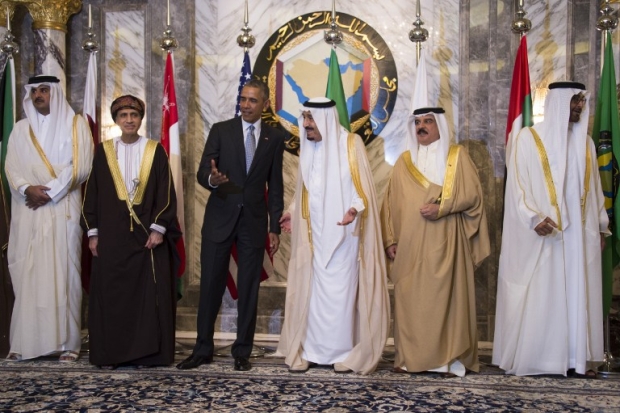Syria was never America's to lose

Given that over 500,000 have been killed, more than half the pre-war population displaced and the country is in ruins, it may seem insensitive to speak of geopolitical winners and losers in the Syrian civil war.
The US had no ambassador in Damascus between 2005-11 and reportedly only one State Department desk officer focused on Syria before the Arab Spring
However, as the US prepares for a new administration, Beltway commentators have, inevitably, begun to do so.
Russian president Vladimir Putin is increasingly portrayed as the victor after audaciously dispatching his air force to support Bashar al-Assad in September 2015, enabling the brutal recapture of Eastern Aleppo from rebels last month.
Outgoing US president Barack Obama, in contrast, has apparently ‘lost’ after doing too little to aid the anti-Assad rebels.
A recent ceasefire that ignored the White House arranged by Russia and Turkey, ostensibly a US ally but growing closer to Moscow, has been interpreted as a sign of the US’s regional marginalisation.
Exaggerating Syria's value
However, the extent of Russian victory and American defeat in this narrative is somewhat overstated.
Firstly, it exaggerates Syria’s strategic value to Washington. Before the 2011 rebellion, the US had little long-term interest in Damascus.
As a self-declared member of the "Axis of Resistance", it was a spoiler to George W Bush’s plans to reorder the Middle East, facilitating militant entry into US-occupied Iraq and sponsoring Hezbollah and Hamas, but this was more an irritant than a significant threat.
Syria had been a Soviet, not a US client during the Cold War and it was Moscow that had the longstanding military, economic and political ties, while Washington focused on its principal regional allies Egypt, Israel, Saudi Arabia and Turkey.
Assad’s survival would therefore represent a variation of the pre-2011 status quo, with Syria as an unfriendly pariah allied to Russia, not a regional reordering at Washington’s expense.
Lukewarm commitment to oust Assad
Secondly, the narrative overstates Obama’s commitment to Assad’s overthrow.
Had Obama been determined to overthrow the Syrian dictator, throwing substantial military resources against him and still not succeeded, then perhaps Assad remaining in power would represent a defeat.
But this was never the case. Obama called for Assad to stand aside in August 2011 primarily because he and his advisors thought the Syrian president’s fall was inevitable and to appear on the ‘right side of history’ rather than as the first step in a concerted anti-Assad campaign.
Support for the rebels was lukewarm at best. The White House repeatedly scotched plans to arm the rebels, unconvinced they were moderate enough, and forbade regional allies from supplying heavy weaponry.
READ: Behind the real US strategic blunder in Syria
Eventually, arms were sent through CIA and Department of Defense programmes, but they were always restricted and significantly less than that provided to Assad by his key allies, Iran and Russia.
Similarly, Obama was reluctant to deploy US forces directly against Assad, seemingly going out of his way to avoid militarily enforcing his red line on chemical weapons in 2013, welcoming a Russian-brokered deal to disarm Assad’s arsenal instead.
In contrast, a year later, Obama eagerly launched air strikes against the Islamic State (IS) in eastern Syria, showing the lengths he was willing to go to when committed.
Not yet a Russian victory
Finally, Russia’s "victory" is far from assured. The war is still underway and, as seen by the fragility of the recently declared ceasefire, Putin may find concluding the war in his favour difficult in practice.
The conflict has allowed Russia to expand its military presence outside of the former USSR for the first time since the Cold War, but only to a pre-existing ally
Even were Assad to improbably find a way, with Russian and Iranian help, to re-conquer all of Syria, Moscow may be in no stronger position than it was before 2011.
The conflict has allowed Russia to expand its military presence outside of the former USSR for the first time since the Cold War, but only to a pre-existing ally.
That ally is now a war-ravaged shell of its former self and may yet prove a drain on Russia’s already weak economy: requiring substantial military and financial investment for decades.
Moreover, the long-term impact of Putin’s Syria policy could yet prove damaging, such as increasing Russia’s exposure to militant attacks - its ambassador to Turkey was assassinated by one such retaliation "for Aleppo" in December.
Inherited trends
The regional situation in the Middle East has shifted in recent years away from the perceived US dominance of the 1990s and 2000s, and the Syrian conflict has contributed to this. However, many of these trends were inherited, not caused by Barack Obama.
Even if in reality the US’s ‘loss’ in Syria is overstated and Russia’s supposed success is less impressive than imagined, the damage to the perception of US regional power caused, is very real
The 2003 invasion and occupation of Iraq, for example, helped turn the US public against deploying "boots on the ground", limiting the scope for long-term large-scale American intervention.
Similarly, the consequences of that war increased the regional activism of Iran, Turkey, Saudi Arabia and Russia. Many of these forces played out in the Syria conflict, reinforcing the shift to a more multi-polar Middle East.
Whether it was possible to reverse this trend by committing substantial resources to the rebel side in Syria remains a matter of intense debate among commentators, but it is clear that Obama was unwilling to do so.
He leaves the White House with the US still by far the most powerful external actor in the Middle East, with a presence in Kuwait, Bahrain, Iraq, Qatar, Turkey, UAE, Jordan, Saudi Arabia and Egypt, compared to Russia’s two bases in Syria.
Even if in reality the US’s "loss" in Syria is overstated and Russia’s supposed success is less impressive than imagined, the damage to the perception of US regional power caused, is very real.
How Donald Trump, with a bizarre mixture of isolationists and neo-cons on his newly assembled foreign policy team, will approach the situation, like so much after his inauguration on 20 January, remains a mystery.
- Christopher Phillips is Senior Lecturer at Queen Mary, University of London and Associate Fellow at Chatham House. His latest book, The Battle for Syria: International Rivalry in the new Middle East is on sale now.
The views expressed in this article belong to the author and do not necessarily reflect the editorial policy of Middle East Eye.
Photo: US President Barack Obama walks with Russian President Vladimir Putin at the Asia-Pacific Economic Cooperation summit, Beijing 11 November, 2014 (AFP)
This article is available in French on Middle East Eye French edition.
Middle East Eye propose une couverture et une analyse indépendantes et incomparables du Moyen-Orient, de l’Afrique du Nord et d’autres régions du monde. Pour en savoir plus sur la reprise de ce contenu et les frais qui s’appliquent, veuillez remplir ce formulaire [en anglais]. Pour en savoir plus sur MEE, cliquez ici [en anglais].








